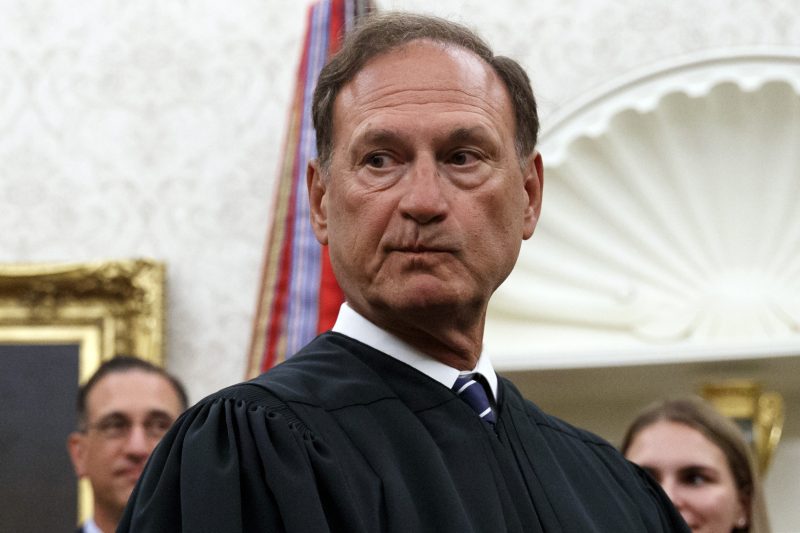In a recent decision that has sparked controversy within judicial circles, Justice Samuel Alito of the United States Supreme Court made a striking assertion: he has declared himself to be sufficiently impartial in matters of the law. This bold statement has raised eyebrows and prompted intense debate over the role of bias and subjectivity in the highest levels of the American judicial system.
Justice Alito’s proclamation of his own impartiality comes at a time when the concept of fairness and neutrality in the courts is being scrutinized more than ever. In an era marked by political polarization and heightened scrutiny of judicial decisions, the question of judicial impartiality has taken on new urgency.
Critics of Justice Alito’s claim argue that the very essence of impartiality is the ability to recognize and acknowledge one’s own potential biases. By asserting that he is sufficiently impartial, Justice Alito is essentially closing the door to any criticism or skepticism of his own decision-making process. This has led some to question whether Justice Alito’s self-assessment is a sign of hubris or a genuine belief in his own objectivity.
On the other hand, supporters of Justice Alito point to his long and distinguished career on the bench as evidence of his fairness and impartiality. They argue that Justice Alito’s track record speaks for itself and that his assertion of impartiality is a reflection of his commitment to upholding the rule of law without fear or favor.
Regardless of one’s stance on Justice Alito’s self-declared impartiality, the larger issue at hand is the extent to which judges can truly separate themselves from their own personal beliefs and experiences when interpreting the law. In a legal system built on the principle of equal justice under the law, the ability of judges to set aside their own biases and prejudices is paramount.
As the discussion around Justice Alito’s claim continues to unfold, it serves as a reminder of the complex and nuanced nature of judicial decision-making. The pursuit of impartiality is an ongoing challenge for judges at all levels of the legal system, and the debate over Justice Alito’s self-assessment is just one piece of a much larger puzzle.
In the end, the question of judicial impartiality is one that goes to the heart of our legal system and the principles on which it is based. Whether Justice Alito’s assertion holds true or not, the conversation it has sparked is an important one that will continue to shape the way we think about justice and fairness in the modern era.


























